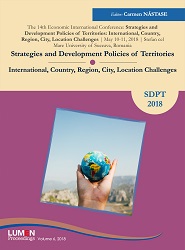The Strategy of International Monetary Fund in the Recovery of the Post-Crisis Economy in Latin America
The Strategy of International Monetary Fund in the Recovery of the Post-Crisis Economy in Latin America
Author(s): Daniela Mihaela Neamţu
Subject(s): Business Economy / Management
Published by: Editura Lumen, Asociatia Lumen
Keywords: GDP; financial crisis; economic growth; tax account; inflation:
Summary/Abstract: The IMF's past experience in Latin America is far from promising. The failure of the Argentinian economic program in 2001 was a strong blow to the International Monetary Fund (IMF), namely rescue policies and their effectiveness, diminishing the institution's support in both developing and developed countries. Our main concern is how one country deals with the policies proposed by the IMF and the degree of government freedom. This paper is an attempt to assess how much a country needs the IMF. Argentina's and Brazil's recovery experience following the devaluation of the national currency provides an interesting case of analysis. Following the 1999 currency devaluation, Brazil pursued a closely monitored economic policy supported by the IMF, while Argentina, after the 2001-2002 crisis, pursued a more independent policy that in many cases opposed the IMF's recommendation. This paper compares the performances of both countries, as well as the benefits of pursuing or not the IMF's "recipe" to get out of a foreigner that could come from the balance of payments deficit. As we can see, pursuing the "recipe" of the IMF does not ensure either success or failure. This paper compares the experience of both countries with which it has the best strategy for recovery. Economic performance shows us that both countries have come back in a similar way, highlighting the need for the IMF to engage in recovery.
- Page Range: 68-82
- Page Count: 15
- Publication Year: 2018
- Language: English
- Content File-PDF

